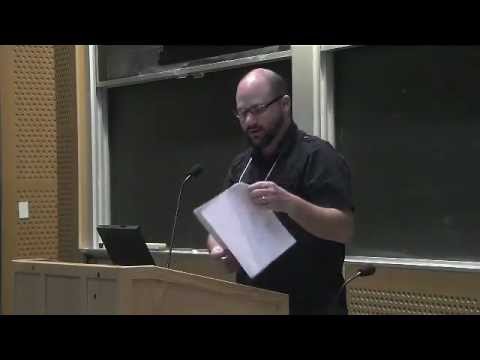TheTrevTutor
In this video we look at word order in languages, grammaticality, prescriptive and descriptive grammar, as well as some basic phrase structure rules.
Check out my NEW syntax series on my YouTube channel for more syntax!
Visit our website: http://bit.ly/1zBPlvm
Subscribe on YouTube: http://bit.ly/1vWiRxW
Like us on Facebook: http://on.fb.me/1vWwDRc
Hello, welcome to TheTrevTutor. I’m here to help you learn your college courses in an easy, efficient manner. If you like what you see, feel free to subscribe and follow me for updates. If you have any questions, leave them below. I try to answer as many questions as possible. If something isn’t quite clear or needs more explanation, I can easily make additional videos to satisfy your need for knowledge and understanding. .




Excelent video
He likes you and me is prescriptive or descriptive?
bad bad bad
PRESCRIPTIVE GRAMMAR: Right!
thank you so so so much this really helped me out
I think people are probbaly afraid to leave comments, man. LOL And, I am enjoying the instruction immensely. Thank you so much for the teaching of this subject which is so very important for those who wish to be correct.
I always find it confusing about how concepts like subject and object are taken as a given. I find them some of the hardest concepts to nail down. We always introduce people to syntax with stuff like SVO. However, it completely presupposes an understanding of things like word class. It also leads lots of people to assume that subject means the same thing as agent, and it all goes fine until they hit passive constructions. Personally I think the subject-predicate distinction is the best starting point. It gives a better entry level understanding of syntax and doesn't get bogged down by being conflated with squishy semantic notions.
Thank you very much
Good explanation makes the lesson easy thank you so much !!
Thanks for your explanation in this video.
Thank you so much for jotting down these complex topics into easy bits. it has helped us a lot as non-native English speaker we do not normally learn these things in schools.
boy hit ball S V O
so helpful. thank you!
Just an observation: SUKI in Japanese isn't a verb, actually is an adjective. It's a little complicated. So if you want to change you're example, you could use: Boku wa niku wo taberu – I eat meat. (Boku wa will be the Subject, niku wo will be the direct object and taberu will be the verb).
Suki is a noun or an adjectival noun… but I get your point
How can we make a tree of "It is a fishing rod"? What is "fishing" here?
Any thoughts on the criminal act by use of ‘fraudulent conveyance of language’?
[i.e. Parse Syntax Grammar per the use of a Mathematical Interface; curtesy of :David-Wynn: Miller. -RIP D: ]
In Greek it's all the forms:
Ο Γιάννης αγαπάει τη Μαρία SVO
Αγαπάει, Ο Γιάννης τη Μαρία VSO
Αγαπάει την μαρία, Ο Γιάννης VOS
Τη Μαρία αγαπάει Ο Γιάννης OVS
Τη Μαρία Ο Γιάννης αγαπάει OSV
Ο Γιάννης τη Μαρία αγαπάει SOV
No English teacher can be a good teacher unless or until he/ she is with a good sense of linguistics. I'm getting a great help from this. Thanks to all.
Excellent lesson.